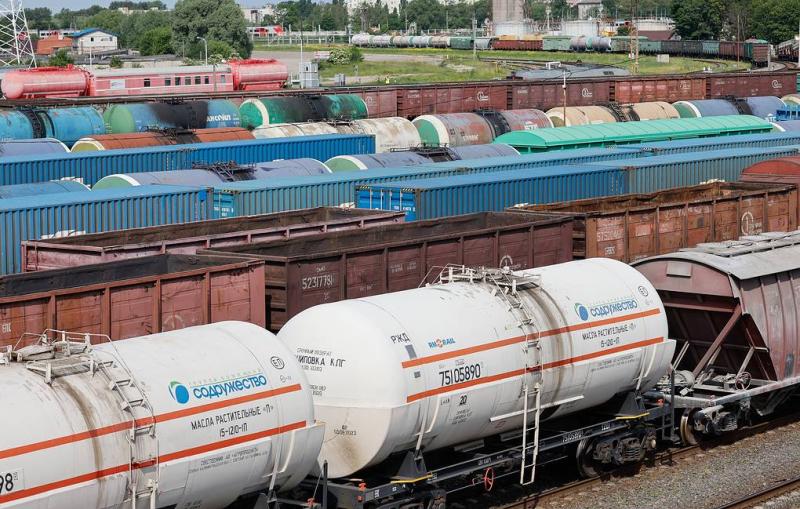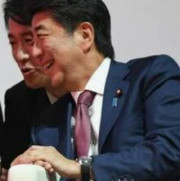
© Vitaly Nevar/TASS
Top stories from the Russian press on Tuesday, June 21st, prepared by TASS
Kommersant: Russia accuses Vilnius, Brussels of imposing ‘blockade’ on Kaliningrad
The European Union has prohibited the transportation of sanctioned cargo across Lithuania to and from Russia's Kaliningrad Region. These restrictions may affect up to 50% of goods shipped into and out of the region by rail. The Russian authorities see this as a "blockade" of Kaliningrad by Lithuania and the European Union, and they have threatened tit-for-tat actions. According to Kommersant, the major concern for Moscow and the exclave’s leadership is establishing uninterrupted supplies of goods prohibited for transit.
Vilnius insists that interruptions in transit are due to the collective decision to implement the European Union’s sanctions against Russia, and the initiative of the Lithuanian side. Lithuanian customs clarified that from July 10, a ban on the transportation of cement, wood, alcohol, caviar, and a number of other goods will come into force. Starting from August 10, transporting Russian coal will be prohibited, and from December 5, a ban will go into effect on oil and oil products.
The Russian side, however, deemed the explanations of Lithuania and the EU unconvincing. Kremlin Spokesman Dmitry Peskov called the restriction of rail transit "an element of the blockade". Chairman of the Federation Council Committee for the Protection of Sovereignty Andrey Klimov said that if the EU and Vilnius do not reconsider their decision, Russia will have to "solve the Kaliningrad transit problem created by Lithuania by any means".
Meanwhile, the Russian authorities will have to deal with the problem of delivering sanctioned goods to the Kaliningrad Region. A source told Kommersant that negotiations are underway to use Russian Baltic ports to service traffic to Kaliningrad.
Partner at Rustam Kurmaev & Partners Dmitry Gorbunov believes that in theory, Lithuania could be held legally responsible for this violation in an international court. However, "Such a dispute can drag on for years, given the possibility of appealing the decision to a higher instance of an authorized international court," he noted.
Kommersant: Finland, Sweden running out of time to strike deal with Turkey before NATO summit
The latest round of negotiations between Turkey, Sweden and Finland has achieved "clear progress", according to the participants, but did not clear up all discrepancies. Ankara continues to insist that the two Scandinavian countries meet a number of its conditions before they can join NATO. Furthermore, Turkish President Recep Tayyip Erdogan plans to release some documents during the NATO summit in Madrid next week, indicating that the contenders to join the alliance actively supported and even supplied Kurdish groups in Syria with weapons. According to Kommersant's Turkish sources, reaching a consensus before the NATO summit seems impossible.
Experts interviewed by Kommersant also believe that the bargaining for the entry of Nordic countries into NATO would not end in the near future. Political analyst from Turkey and member of the Valdai International Discussion Club Hasan Selim Ozertem said in an interview with Kommersant that it doesn’t seem possible to settle all issues before the Madrid summit. Finland and Sweden are most likely ready to lift sanctions on arms supplies, but there will be problems with the extradition of Kurdish fighters who have sought asylum in Scandinavia, the expert added.
"It seems to me that Ankara will not make concessions quickly," Director of the Center for modern Turkish studies Amur Gadzhiev noted. "Most likely, the Madrid summit will only outline the framework for a future solution. It may be completely unexpected," the expert said. He added that the the Turkish population fully comprehends the confrontation with Finland and Sweden, and this goes for not just Erdogan‘s supporters.
In turn, Sweden is not ready to put off the issue of joining NATO, Associate Professor at the Institute of Russian and Eurasian Studies (IRES) at Uppsala University Gregory Simons believes. According to the expert, emotions and a sense of national pride on both sides now play a big role in the diplomatic confrontation and the search for compromises will not be easy, as follows from the previous rounds of negotiations.
Nezavisimaya Gazeta: Ukraine pinning hopes on EU candidate status
The European Union is expected to make a decision on Ukraine's candidate status in the coming days. President Vladimir Zelensky stated that a decision in favor would be in Europe‘s best interests. Although its availability in Brussels was contingent on a variety of conditions. Experts interviewed by Nezavisimaya Gazeta are looking forward to the decision and argue that the status might be symbolic in nature.
The EU has compiled a list of conditions for Kiev. Specifically, revising the procedures for appointing Constitutional Court judges, boosting the fight against corruption and money laundering, devising a strategy for reforming the law enforcement sector, and enacting an anti-oligarchic law, as well as media legislation. Another demand was voiced by the lawyer of the Association of Sons and Daughters of Jews Deported from France Arno Klarsfeld. By his definition, if Ukraine intends to legally become a member of the EU, they should stop glorifying Nazi collaborators, particularly Stepan Bandera.
Head of the Department of Ukraine of the Institute of CIS Countries Ivan Skorikov told Nezavisimaya Gazeta that Ukraine is unlikely to follow the latest requirement, since it was not included in the official list from the EU, implying that Western countries supported what they believed represented Ukraine’s fight for independence in its confrontation with Moscow. He also stated that Zelensky is using the potential candidate status for propaganda purposes, and that nothing would actually change in the country.
The decision on Kiev’s candidate status is mostly a political gesture to show support for Ukraine in its fight against Russia, associate professor at MGIMO, Director Center for European Information Nikolay Topornin told the newspaper. However, according to a variety of criteria, including economic ones, Ukraine does not qualify as a candidate right now. However, in the current situation, Brussels opted to grant the status because the Ukrainian leadership and populace think that these European aspirations are not a pipe dream.
Izvestia: No cooperation possible while EU regards Russia as adversary, says diplomat
There will be no return to the old relations between Russia and the European Union, Russian Permanent Representative to the EU Vladimir Chizhov said in an interview with Izvestia. According to the diplomat, Brussels should now reconsider its position towards Russia in order to prevent the still existing dialogue from further deteriorating.
Relations between Russia and the European Union continue to disintegrate, and therefore the parties have yet to create a new system of relations based on equality, the diplomat believes. "Not all bridges have been burned. But most [have]. Let's see what happens next. In any case, there will be no return to business as usual. We understand this, and they understand this," Chizhov stressed.
"That means this will be a new system of relations that has yet to be created. But it can only be created on the basis of equal cooperation. And for this they must change their attitude towards Russia. As long as they consider Russia an opponent, an adversary, what kind of cooperation can we talk about?" he added.
Western countries might have supported the sluggish negotiation process between Russia and Ukraine, but Kiev is doing everything to prevent such negotiations from taking place in the future, the diplomat noted. "First, this [the suspension of negotiations] happened at the initiative of Ukraine. Today, Western countries, perhaps, would not be against such sluggish negotiations. But the Kiev regime is doing everything to prevent them," Chizhov said.
Vedomosti: Finance Ministry expects oil and gas budget revenues to exceed 40% in 2022
Oil and gas revenues in 2022 should provide more than 40% of federal budget revenues, according to a draft document on the budget, tax and customs tariff policy of the Ministry of Finance for the next three years. Experts interviewed by Vedomosti believe the share could be even higher.
According to the ministry, revenues from oil and gas sales will increase to 10.4 trillion ($186.9 bln) in 2022 and reach a share of 40.9%. At the same time, the dependence of the budget on oil and gas revenues is expected to gradually decrease: in 2023 to 36.9%, in 2024 to 33.3%, and in 2025 all the way to 30.2%.
The share of oil and gas budget revenues in 2022 may significantly exceed 40%, expert at BCS World of Investments Evgeny Mironyuk told the newspaper. Given the new economic reality - a general drop in exports and simultaneous nominal increase in profits from the sale of oil and gas abroad - non-oil and gas budget revenues could be expected to decline at a double-digit pace, he noted. Further dynamics of non-oil and gas revenues will depend on the possibility of economic restructuring.
In 2022, under relatively conservative assumptions, the share of oil and gas revenues of the federal budget is expected to reach 39-40%, but further growth or a rebound is unlikely, Director of the ACRA Sovereign and Regional Ratings Group Dmitry Kulikov noted.
According to Gazprombank economist Pavel Biryukov, a gradual increase in export prices and Russia’s production volumes will form a trend towards a gradual rise in the share of oil and gas revenues in the long term.









